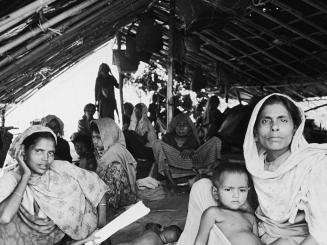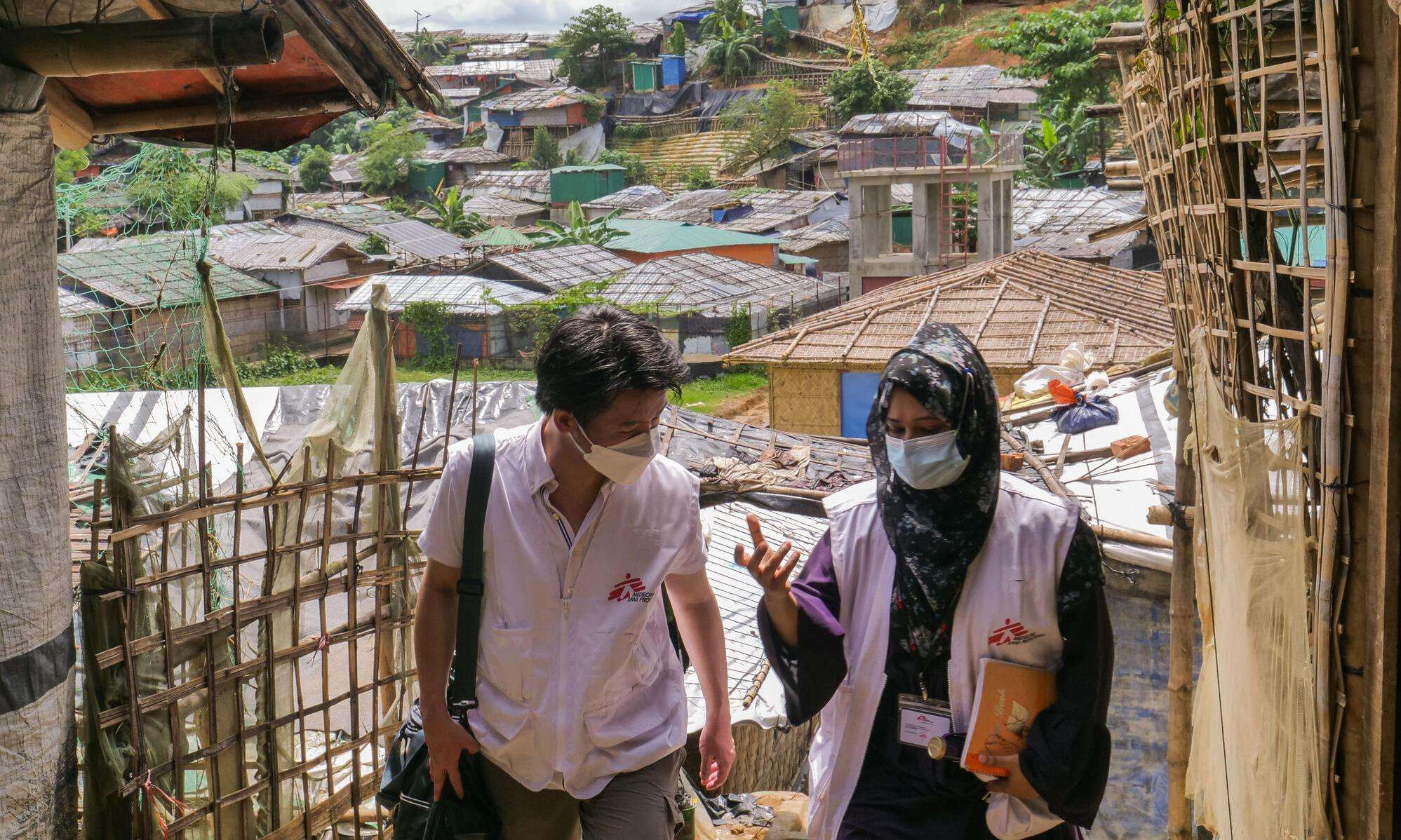NEW YORK, MARCH 2, 2023—New cuts to the food rations received by approximately one million Rohingya refugees in the Cox’s Bazar district of Bangladesh will increase the risk of malnutrition and have serious impacts on people’s health, said the international medical humanitarian organization Doctors Without Borders/Médecins Sans Frontières (MSF). Citing a lack of funding, the World Food Programme (WFP) cut rations yesterday by 17 percent, bringing the number of calories per person to below the accepted minimum standard of 2,100 calories per day. Donors must immediately reprioritize Rohingya refugees and reaffirm funding commitments, said MSF.
Rohingyas living in refugee camps in Cox’s Bazar district are almost completely dependent on food assistance. Most of the people living in these camps were forced out of Myanmar’s Rakhine state in August 2017 following a concerted campaign of extreme violence by the Myanmar authorities against them. These refugees are now confined to the camps and prohibited from working, which prevents them from supplementing their already meagre food rations.
“MSF is committed to providing services to the Rohingya population as long as needed, but covering more medical needs in the Cox’s Bazaar camps is already outstripping MSF’s capacities,” said Claudio Miglietta, MSF country representative in Bangladesh. “Funding has gone down, and the number of aid organizations working in Cox’s Bazar has declined by almost 80 percent.”
August 24 11:01 AM
Timeline: A visual history of the Rohingya refugee crisis
Years after the mass exodus of Rohingya people from Myanmar, their future looks as uncertain as ever.
Read More
A reduced calorie intake puts people at risk of malnutrition and anemia—something that is especially dangerous for pregnant people and newborn babies. Many of those receiving antenatal care at MSF health facilities are already malnourished. Last year, 12 percent of pregnant people at Kutupalong hospital and Balukhali clinic were diagnosed with acute malnutrition, and 30 percent had anemia.
People who are malnourished and anemic are at a higher risk of experiencing complications during childbirth, and their newborn babies are more likely to have poor health outcomes. Even at the current level of food rations, 28 percent of babies born in Kutupalong hospital and Balukhali clinic have a low birthweight, increasing their chance of becoming sick and malnourished.
Many refugees in the camps also suffer from chronic diseases such as heart disease, hypertension, and type II diabetes. MSF currently provides care for a cohort of more than 4,500 people. For non-communicable disease patients, a healthy diet is a critical part of managing their health conditions. Reduced access to adequate food will increase their reliance on medical care, potentially increasing demand for already overburdened health services in the camps.
These food ration cuts could also increase the risk of future outbreaks of infectious diseases such as measles and cholera since having weakened immune systems make people more susceptible to contracting diseases. This comes at a time when health services in the camps are already under enormous pressure as they struggle to deal with the medical impacts of people’s dire living conditions, including frequent outbreaks of scabies, dengue fever, and cholera—a result of living in close proximity with poor sanitation, stagnant water, and overflowing latrines.
MSF is concerned that a reduction in food rations will also heighten the sense of desperation already prevalent throughout the camps and could drive more Rohingya to undertake highly dangerous sea and land journeys in search of a better life and a more hopeful future.
MSF has provided medical care in the refugee camps in Bangladesh’s Cox’s Bazar district since 1992. Last year, teams provided more than 750,000 outpatient consultations and admitted more than 22,000 people for inpatient care.




